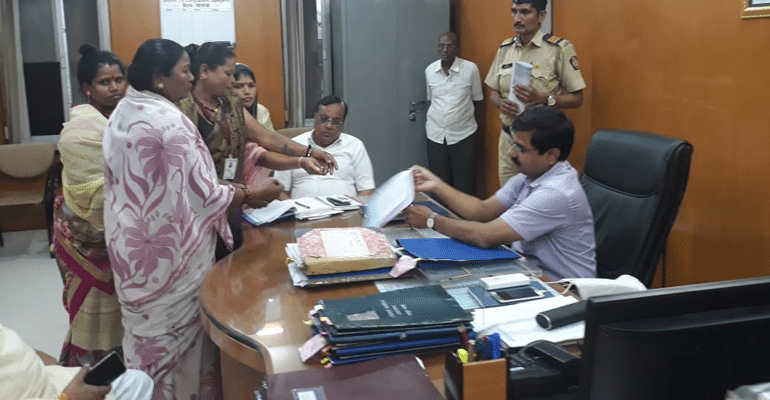When the world was busy judging them for their work, this section of the society has proved time and again that no matter how small it is, even little act of kindness can make a huge difference, especially in a time when a part of the nation is going through a crisis.
Recently, on August 21, a group of sex workers from Ahmednagar district donated a sum of Rs.21,000 for Kerala flood victims and by the end of the month, they will be raising another Rs.1 lakh. The Yuvanirman team will leave shortly with an Ambulance well equipped with first aid, Sanitary Pads (made in Snehalaya) and food material for Kerala. They will be working with Goonj foundation there.
This is not the first time that the women in flesh trade have contributed towards helping the victims of natural calamities. Till date, they have contributed nearly Rs.27 Lakhs for helping the victims of the earthquake in Gujrat, Tsunami on the south coast, Kargil war, famine in Maharashtra, Kashmir & Tamilnadu, floods in Bihar etc.

Snehalaya, an NGO which is working towards the welfare of sex workers and their children is the brainchild of Dr.Girish Kulkarni who believed that “Every woman and child should have the right to a life free from inequality, cruelty, and discrimination.”
While talking to Life Beyond Numbers, Dr. Priti Bhombe (44), who is in charge of the fundraising department in the NGO says, “Whenever a person is diagnosed with HIV/AIDS, the society strips that person of dignity, but if you take a closer look, the picture is very different.”
Since 1989, the victims of flesh trade were Snehalaya’s beneficiaries. Earlier people affected with AIDS were looked down upon. “I have come across people who were affected with AIDS and didn’t have a care in the world. Also, health centers used to throw them out once they realize the person cannot be cured and that investing money on them is a waste of time. But in Snehalya, our community centers take care of them till death and perform the rituals related to it. It is like providing them with dignified death,” says Priti.
Previously, the NGO focussed only on female sex workers but then these women asked us to help their children. Therefore, a rehabilitation center was built for these children where kids are being taken care of. Currently, the NGO shelters 350 children, out of which 50% are affected by AIDS.
In Ahmednagar, a huge population comprises of migrant workers, and because the place is on a busy transport route, it is severely affected by droughts. All of which contribute to high levels of prostitution and human trafficking and ultimately the spread of sexually transmitted infections (STIs), including HIV and AIDS.
In five years, Snehalaya has provided safe haven to over 1,000 women in Ahmednagar and have recently opened another shelter in Pune. Also, in 2004, they opened adoption center doors and have successfully rescued and saved the lives of over 500 babies, adopting them under a government approved and accredited process.
The approach of society towards an HIV patient is very different. You understand the difference in psychology when you put people affected by cancer and the ones affected by HIV in one frame.
Even though both cancer and HIV are fatal for humans- in case of cancer patients, there is complete acceptance, sympathy and compassion from society, they will be treated till the end and have dignity even in death. Now imagine this person to be affected with HIV, she will be stripped of her dignity immediately, face humiliating and difficult questions, and compassion will be withdrawn from them in every possible manner.
We need to understand, people do not willingly invite diseases into their life, It is no fun. All of this happens due to lack of awareness or understanding.
Thanks to counseling and awareness raised by this NGO, there are no underage sex workers in the district. Also, their grassroots approach has drastically reduced the rates of STIs in the district by 80%, making it now one of the lowest in India.
In a time when most of us have become self-centered and our compassion for humanity has become so low, these women are setting an example of humanitarian behavior.
Despite living in such difficult circumstances and having a very meager income, they have a great feeling of compassion for others, which makes them class apart.

